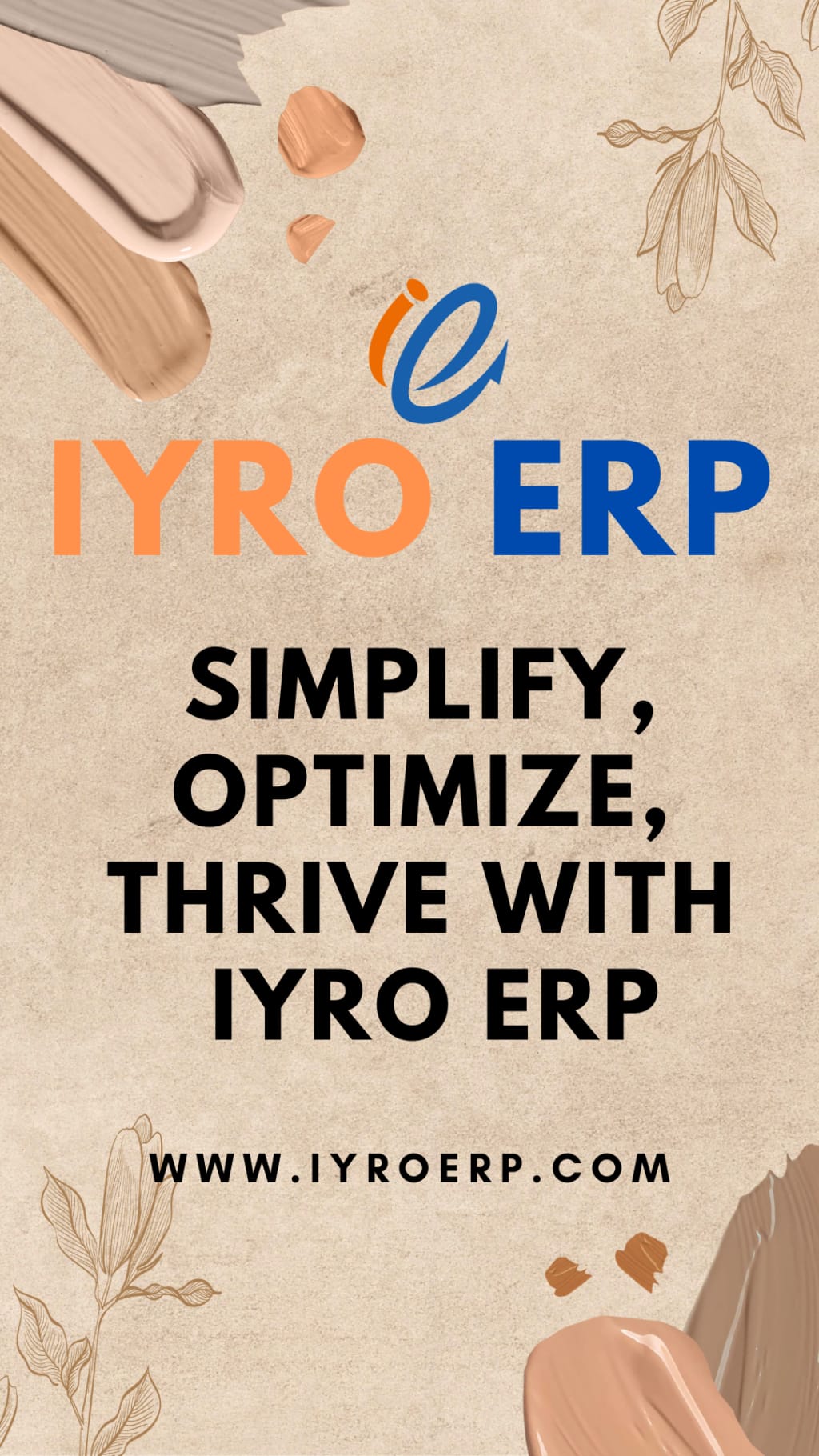Measuring the Success of ERP Implementation
Implementing an Enterprise Resource Planning (ERP) system is a significant undertaking for any organization. It involves substantial investments of time, resources, and effort. To ensure a successful ERP implementation, we need to choose the right ERP Software. IYRO ERP is one of the finest cloud-based ERP software in Bhubaneswar.

Alignment with Business: The success of an ERP implementation should be evaluated based on its alignment with the organization's strategic goals. Assess how well the system supports and improves key business processes, enhances productivity, streamlines operations, and enables better decision-making. Measure the system's effectiveness in delivering the expected business outcomes and achieving the defined goals.
System Adoption and User Satisfaction: The level of system adoption and user satisfaction is a critical factor in evaluating ERP success. Monitor user acceptance and engagement with the system through surveys, interviews, and feedback mechanisms. Assess user satisfaction with the system's functionality, ease of use, performance, and overall user experience. High adoption rates and positive user feedback indicate that the ERP system is meeting user expectations and providing value to the organization.
Process Efficiency and Cost Savings: Measure the impact of ERP implementation on process efficiency and cost savings. Evaluate key performance indicators (KPIs) such as reduced cycle times, improved resource utilization, increased accuracy, and decreased manual effort. Analyse cost savings achieved through streamlined processes, optimized inventory management, reduced downtime, or improved procurement practices.
Data Accuracy and Decision-Making: Evaluate the ERP system's impact on data accuracy and its contribution to informed decision-making. Assess data quality, integrity, and reliability after implementing the system. Measure the accuracy and timeliness of reports and analytics generated from the ERP system. Evaluate the system's ability to provide real-time insights, forecasting capabilities, and data-driven decision support.
System Reliability and Scalability: Measure the reliability and scalability of the ERP system to ensure its long-term success. Assess system uptime, performance, and response time. Evaluate the system's ability to handle increasing data volumes, user loads, and expanding business requirements. A reliable and scalable ERP system is essential for supporting business growth, adapting to changing needs, and accommodating future expansion.
Vendor and Implementation Partner Performance: Evaluate the performance of the ERP vendor and implementation partner involved in the project. Assess their adherence to timelines, budget, and quality standards. Measure their level of support during the implementation process, including training, documentation, and post-implementation assistance. Evaluate the effectiveness of their communication and collaboration with the organization's project team. The vendor and implementation partner's performance significantly impacts the success of the ERP implementation, and their ability to meet expectations and deliver on commitments is crucial.
Change Management and User Training: Assess the effectiveness of change management strategies and user training programs during the ERP implementation. Measure the level of readiness and acceptance of organizational changes resulting from the new system. Evaluate the extent to which employees are trained and equipped to use the ERP system effectively. Consider the availability and effectiveness of training materials, user manuals, and ongoing support. Successful change management and comprehensive user training contribute to smoother adoption and utilization of the ERP system.
Integration and Interoperability: Evaluate the ERP system's integration capabilities and interoperability with other systems within the organization's IT landscape. Measure the ease and effectiveness of data exchange and communication between the ERP system and other critical applications or databases. Assess the system's ability to integrate with external systems such as customer relationship management (CRM), supply chain management (SCM), or business intelligence (BI) tools.
Continuous Improvement and Flexibility: Consider the ERP system's adaptability and potential for continuous improvement. Evaluate the organization's ability to make necessary enhancements or customizations to meet evolving business needs. Assess the availability of system updates, vendor support, and opportunities for system optimization. A successful ERP implementation allows for flexibility and ongoing improvements to address changing requirements and maintain long-term relevance.
Return on Investment (ROI): Measure the financial impact and return on investment resulting from the ERP implementation. Assess the cost savings, revenue growth, and operational efficiencies achieved with the system. Evaluate the payback period and compare the initial investment with the overall benefits realized over time. Consider both tangible and intangible benefits, such as improved customer satisfaction, reduced errors, or increased competitive advantage.
Measuring the success of an ERP implementation is crucial to assess its effectiveness, ensure alignment with business goals, and drive continuous improvement. By considering metrics such as alignment with business goals, system adoption and user satisfaction, process efficiency and cost savings, data accuracy and decision-making, and system reliability and scalability, organizations can evaluate the impact of the ERP system on their operations. I would recommend you to go for IYRO ERP as it is one of the finest cloud ERP in India.





Comments
There are no comments for this story
Be the first to respond and start the conversation.